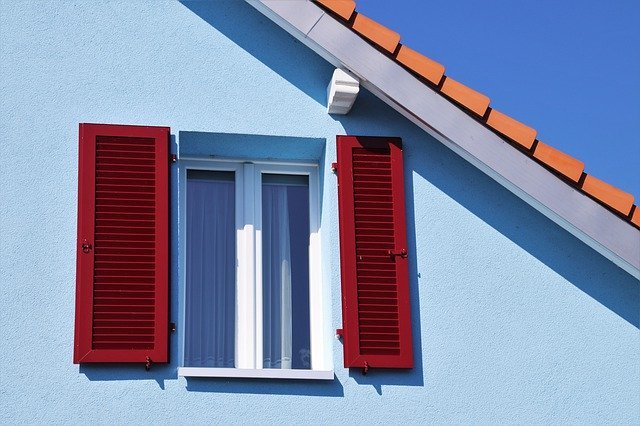
Mortgages are a huge part of the home ownership process, but few aspiring home owners put in the time to actually learn how they are able to save money. The following tips are here to help you in finding your best possible mortgage. Keep reading to learn all you need to know.
Before you start looking for home mortgages, consider your credit score and make sure you do what you can to make sure it’s good. Credit standards are becoming even more strict, and you may need to work on your score before applying for a mortgage.
Gather your documents before making application for a home loan. You will realize that every lender requires much the same documents when you want a mortgage. They want to see W2s, bank statements, pay stubs as well as income tax returns. If these documents are ready, your process will be smoother and faster.
Avoid overspending as you wait for closing on your mortgage. Lenders tend to run another credit check before closing, and they could change their mind if they see a lot of activity. Wait until after the mortgage is a lot on purchases.
Make sure you find out if a property has gone down in value before trying to apply for another mortgage. Even though you might think everything is great with your home, the bank might determine the value of your home in function of the real estate market, which could make you less likely to get your second mortgage.
Make sure you find out if your home or property has gone down in value before trying to apply for another mortgage. Even if your home is well-maintained, the bank might determine the value of your home in function of the real estate market, which could make you less likely to get your second mortgage.
Do not give up if you are denied a loan. Every lender has their own criteria that the borrower must meet to qualify for their loan. This is why it’s always a good idea to apply to a bunch of different lenders to get what you wanted.
This should have all the fees and closing costs associated with the loan. Most companies are honest about these fees, but a few do sneak in charges that you don’t discover until the deal is done.
Look into interest rates and choose the lowest one. Keep in mind that the bank would love to have you commit to the highest rate possible. Don’t fall for it. Go to different banks to find the best deal.
Credit Cards
Cut down on your credit cards you use before buying a home. Having lots of open credit cards can make you finances.
Try lowering your debt before getting a home. You will want to make sure you can pay your monthly payments, regardless of the circumstances. Keeping your debt load down will keep you secure and better able to withstand any emergencies.
Have a good amount in savings account prior to applying for a mortgage. You will need the cash for fees associated with inspections, closing costs and the down payment. If you are able to afford a substantial down payment, you will get better terms.
If your credit is bad, then know it’s smart to have a bigger down payment before filling out mortgage applications. It is common practice to have between three to five percent; however, but you should aim for around twenty if you want to increase your chances of being approved.
ARM, or adjustable rate mortgages, don’t expire near the term’s end. However, the rates adjust to the current rate. This is risky because you may end up paying more interest.
Many sellers just want out and will help you out.You will end up making two payments each month, but it can get you the mortgage you want.

Speak with a broker and feel free to ask them questions about things you do not understand. It is really essential that you always understand what is happening. Be sure to provide your loan broker with all current contact information. Look at your email frequently in case they need certain documents or updates on new information comes up.
Try to get a second mortgage if you are unable to afford the down payment. They just might help you. However, now you will need to come up with two payments each month in order to keep your home.
Credit Score
You need excellent credit it up if you want a decent loan. Know what your credit score. Fix mistakes in your report and keep working to raise your credit score. Consolidate small obligations into one account that has lower interest and repay it quickly.
Write down questions you may have regarding your mortgage loan, interest rate and associated fees. You must know what’s going on. Your broker needs to have all of your contact information. Keep up with emails and other messages from the brokerage firm, in case they need to update your files with additional information.
Clean up your credit before you look for a loan. Lenders today want you to have great credit. They need to make sure that you are going to repay your loan. Tidy up your credit before you apply for a mortgage.
Compare multiple factors as you shop for a mortgage broker. You will want to get the best interest rate. Think about closing costs, such as closing costs and down payment requirements.
Clean up your credit before you look for a mortgage. Good credit is a must. They need some incentive to be sure that you’re going to repay the loan. Check your credit score and make sure your report is accurate.
Avoid making any changes to your financial situation until after your loan closing. The lender will likely check your credit score even after a loan is approved. They may rescind their offer if you apply for a new credit card or take on a new car payment.
If you have plans to purchase a home within the next year or so, now would be a great time to speak with a financial institution to develop a good relationship. You might even get a personal loan and pay it off before you apply for a good credit rating. This shows your lender that you are someone who pays the bills.
If you plan to buy a new home within a year or two, build a sold relationship with your bank or credit union. It might be wise if you took out a loan for something like furniture and then re-pay it before you apply for a mortgage. In this way, you will have good standing in advance.
Save some money ahead of applying for your mortgage. You usually need to have at least 3.5 percent down. You need to pay for mortgage insurance if your down payment is under 20%.
Keep in mind that a mortgage broker you deal with will get a bigger commission from a fixed rate over a variable rate loan. They may attempt to frighten you into taking a locked in their favor. Avoid this fear by demanding your own terms.
If you have very little credit or no credit history at all, you will need to use alternative sources to qualify for a mortgage loan. Keep your receipts for a year. Providing documentation proving you have made payments, such as rent and utilities, on-time can go far to help you get a loan with less than stellar credit.
Mortgages help you get into a home and stay there. With your increased knowledge you will be able to make your mortgage the best possible. Over the long-term you will benefit, and hopefully be able to live in the home for how long you want.






